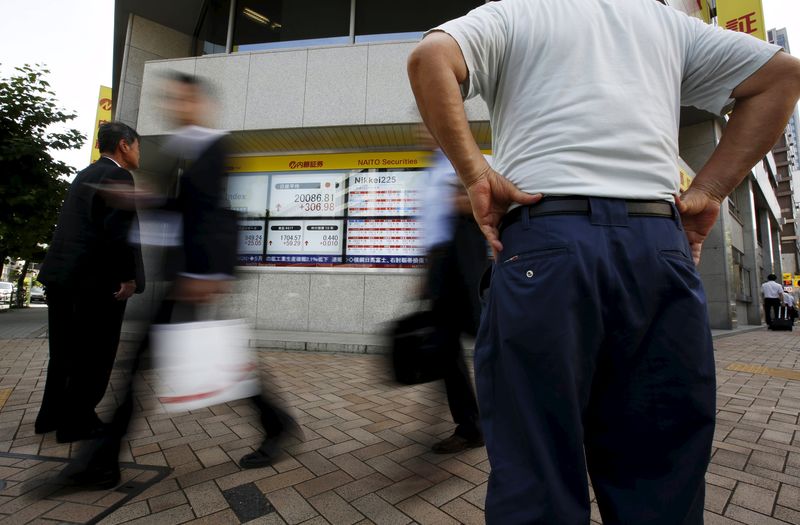By Nigel Stephenson
LONDON (Reuters) - Oil prices dropped, pushing commodity-linked shares and currencies lower on Tuesday, after Iran and six world powers reached a historic nuclear deal expected to increase the supply of Iranian crude on world markets.
European shares edged lower in early deals, pulled lower by commodity stocks and as investors turned cautious on the prospects of the Greek government winning parliamentary support for reforms demanded by its creditors in exchange for talks on an 86 billion euro rescue package.
But oil was the big mover, down nearly 2 percent, after Tuesday's deal, clinched in Vienna after more than a decade of on-off negotiations, granting Iran sanctions relief in exchange for curbs in its nuclear programme.
Brent crude was last down $1.35 a barrel, or 2.3 percent, at $56.50 a barrel.
"Sanctions have crippled Iran's oil production, halving oil exports and severely limiting new development projects. The prospect of them being lifted is creating great excitement ... as foreign trade and investment will allow Iran to make huge efficiencies and drive down the cost of production," said Sarosh Zaiwalla, a London-based sanctions lawyer.
The fall in crude prices hit oil producers' currencies. The Norwegian crown fell 0.3 percent to 8.11 per dollar, having earlier fallen to 8.14, while the Canadian dollar fell 0.4 percent against the greenback to a four-month low of C$1.2796.
With worries over Greece assuaged for now, investors also switched their attention to expectations U.S. interest rates will rise in the coming months.
"There is still implementation risk, and (Greek Prime Minister Alexis) Tsipras still has to sell it at home ... but ... there is a shift in focus ... to more fundamental market drivers," said Credit Agricole (PARIS:CAGR) FX strategist Manuel Oliveri in London.
The dollar index, which measure the U.S. dollar against a basket of currencies, was steady, with the euro barely changed at $1.1004 and the yen at 123.35 per dollar.
Federal Reserve Chair Janet Yellen, who said last week she expected U.S. interest rates would rise some time this year, is due to give semi-annual testimony on monetary policy before Congress on Wednesday and Thursday.
European shares fell, snapping a four-day rally.
The euro zone's Euro STOXX 50 index was down 0.4 percent after hitting a two-week high on Monday. It has gained about 9 percent since last Tuesday's close. The STOXX Europe 600 Oil & Gas price index fell 0.8 percent, making it the top sectoral faller.
The pan-European FTSEurofirst 300 index was down 0.3 percent, having risen 1.9 percent on Monday.
Wariness over implementation of the Greece deal helped push safe-haven German Bund yields lower. Ten-year yields fell 2.8 percent to 0.83 percent.
MSCI's broadest index of Asia-Pacific shares outside Japan was up about 0.1 percent, erasing earlier gains. Japan's Nikkei gained 1.5 percent.
Shanghai's benchmark composite index closed down 1.2 percent, while the CSI300 index of the largest listed companies in Shanghai and Shenzhen slipped 2.4 percent.

Gold fell as investors focused on the prospect of higher U.S. interest rates. It was last down about 0.3 percent at $1,154 an ounce.
(Additional reprting by Alistair Smout and Jemima Kelly in London, Ron Bousso in Singapore and Lisa Twaronite in Tokyo)